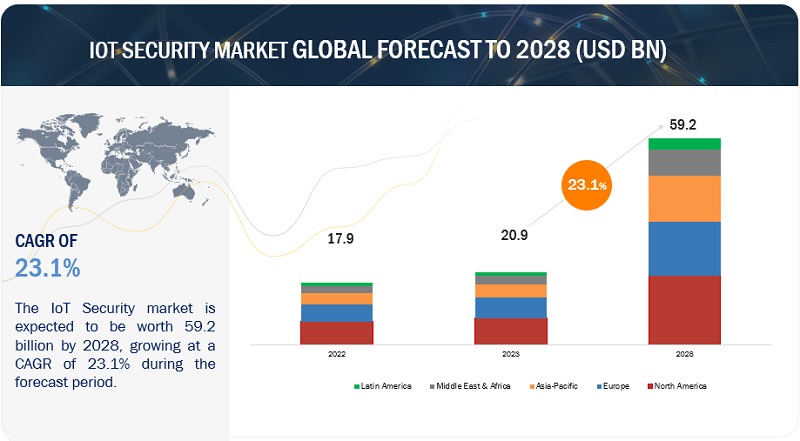Introduction
In today’s digital age, cybersecurity has become a critical concern for individuals, businesses, and governments alike. With the increasing sophistication of cyber threats, it is essential to stay updated on the latest cybersecurity technologies that can help protect our sensitive information and digital assets.
This blog post will explore some of the emerging cybersecurity technologies that are worth keeping an eye on. These innovative solutions have the potential to revolutionize the way we defend against cyber attacks and safeguard our digital infrastructure.
1. Artificial Intelligence (AI) in Cybersecurity

Artificial Intelligence has revolutionized various industries, and cybersecurity is no exception. AI-powered cybersecurity systems can analyze vast amounts of data, detect patterns, and identify potential threats in real-time. Machine learning algorithms enable these systems to continuously learn and adapt to new attack techniques, making them highly effective in preventing cyber attacks.
2. Blockchain Technology
Blockchain technology, known for its association with cryptocurrencies, also holds great potential in the field of cybersecurity. Its decentralized and immutable nature makes it difficult for hackers to tamper with data stored on a blockchain. By leveraging blockchain technology, organizations can enhance the security and integrity of their digital assets, transactions, and sensitive information.
3. Zero Trust Architecture
Traditional security models rely on perimeter-based defenses, assuming that everything inside the network is trustworthy. However, with the increasing number of insider threats and sophisticated external attacks, the zero trust architecture has gained prominence. This approach focuses on verifying every user and device attempting to access the network, regardless of their location, before granting access to sensitive resources.
4. Quantum Cryptography
Quantum cryptography utilizes the principles of quantum mechanics to secure communication channels. Unlike traditional encryption methods, which can be vulnerable to attacks by quantum computers, quantum cryptography offers a higher level of security. It uses quantum key distribution protocols to ensure secure transmission of encryption keys, making it extremely difficult for hackers to intercept or decipher the information.
5. Biometric Authentication
Biometric authentication technologies, such as fingerprint scanning, facial recognition, and iris scanning, provide an additional layer of security beyond traditional passwords. These technologies use unique physical or behavioral characteristics to verify the identity of individuals, making it difficult for unauthorized users to gain access to sensitive systems or data.
Summary
Cybersecurity is an ever-evolving field, and staying ahead of the curve is crucial to maintaining a strong defense against cyber threats. The following are some of the emerging cybersecurity technologies that are expected to make a significant impact:
- Artificial Intelligence (AI) in Cybersecurity: AI-powered systems can analyze vast amounts of data, detect patterns, and identify anomalies in real-time, enabling faster threat detection and response.
- Blockchain Technology: Blockchain’s decentralized and immutable nature can enhance data security, authentication, and privacy, making it a promising technology for securing digital transactions and sensitive information.
- Zero Trust Architecture: This security model assumes that no user or device should be trusted by default, requiring continuous verification and authentication for access to resources, minimizing the risk of unauthorized access.
- Cloud Security: As more organizations adopt cloud computing, robust cloud security solutions are essential. Technologies like cloud access security brokers (CASBs) and secure cloud storage help protect data stored and processed in the cloud.
- Internet of Things (IoT) Security: With the proliferation of IoT devices, securing these interconnected devices and networks is critical. IoT security technologies focus on device authentication, encryption, and secure communication protocols.
By staying informed about these emerging cybersecurity technologies, organizations and individuals can proactively strengthen their defens my sources es and mitigate the risks associated with cyber threats. Embracing these innovative solutions will be crucial in safeguarding our digital future.
- Q: What are some emerging cybersecurity technologies to watch out for?
- A: Some emerging cybersecurity technologies to watch out for include artificial intelligence (AI) for threat detection and response, blockchain for secure transactions and data storage, and quantum cryptography for unbreakable encryption.
- Q: How does artificial intelligence (AI) contribute to cybersecurity?
- A: AI contributes to cybersecurity by automating threat detection and response, analyzing large amounts of data to identify patterns and anomalies, and enhancing the accuracy and speed of incident response.
- Q: What is the role of blockchain in cybersecurity?
- A: Blockchain technology provides secure and tamper-proof transaction records, making it useful for ensuring the integrity of data and preventing unauthorized access or modifications. It can also enhance identity management and enable secure sharing of sensitive information.
- Q: What is quantum cryptography?
- A: Quantum cryptography utilizes principles of quantum mechanics to create unbreakable encryption. It leverages the properties of quantum particles to enable secure communication and protect against eavesdropping or data interception.
- Q: Are there any other emerging cybersecurity technologies worth mentioning?
- A: Yes, some other emerging cybersecurity technologies worth mentioning include secure hardware technologies like trusted execution environments (TEEs), advanced behavioral analytics for user and entity behavior analysis (UEBA), and secure coding practices to prevent software vulnerabilities.



